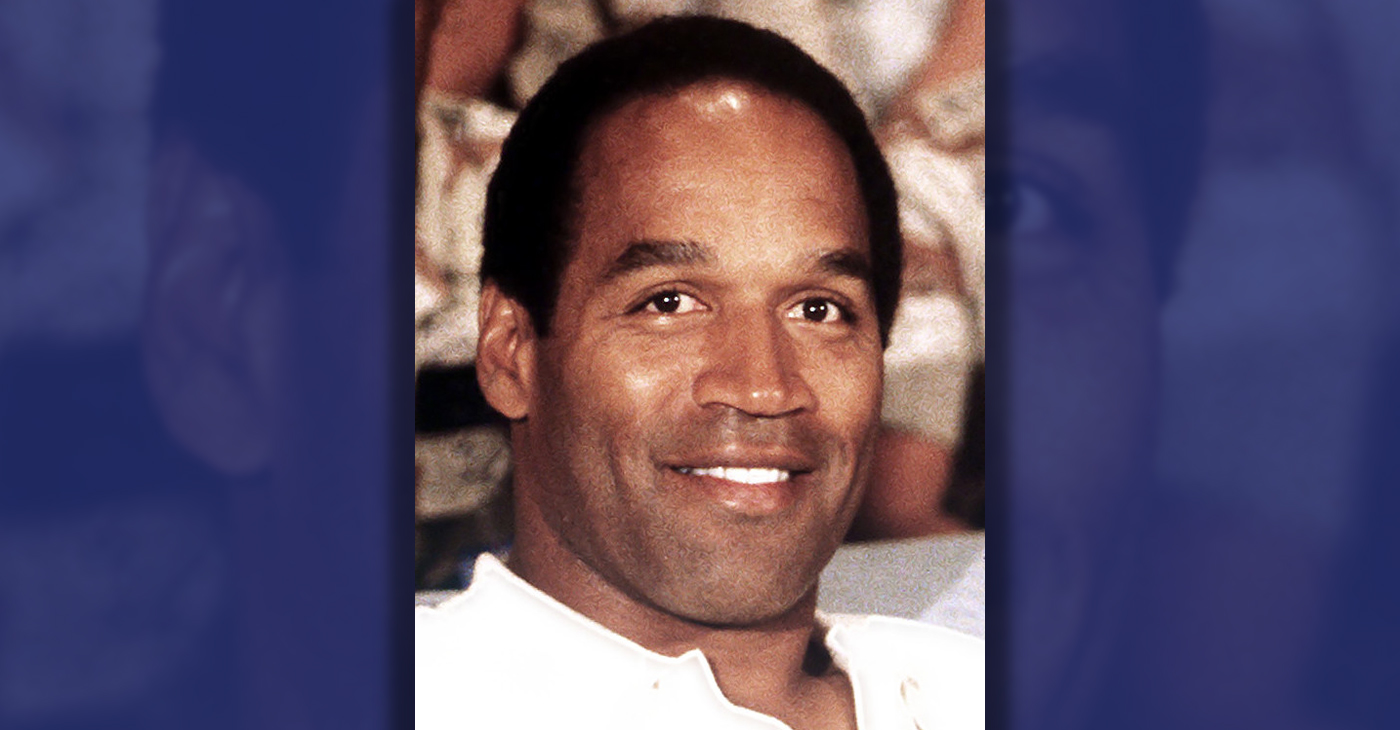Entertainment
Oscar Spotlight Draws Attention to Industry Diversity Issue

In this March 2, 2014 file photo, Lupita Nyong’o accepts the award for best actress in a supporting role for “12 Years a Slave” during the Oscars in Los Angeles. (John Shearer/Invision/AP, File)
JAKE COYLE, AP Film Writer
NEW YORK (AP) — It was a year ago that Lupita Nyong’o, shortly before winning the Academy Award for best supporting actress in “12 Years a Slave,” gave a speech about what she called “dark beauty.”
Nyong’o, who so dazzled Hollywood and the Oscar-viewing public through awards season, spoke tenderly of receiving a letter from a girl who had been about to lighten her skin before Nyong’o’s success, she said, “saved me.” The letter struck Nyong’o because she recognized herself in that girl: “I remember a time when I too felt unbeautiful. I put on the TV and only saw pale skin.”
The Mexican-born, Kenyan-raised actress was a central part last year to an Academy Awards flush with faces uncommon to the Oscar podium.
What a difference a year makes.
This year’s Oscars repeat a stubborn pattern that has plagued the Academy Awards throughout its history: Whenever change seems to come, a frustrating hangover follows. “Every 10 years, we have the same conversation,” Spike Lee, a regular witness to the sporadic progress, has said.
Seldom have such fits and starts been starker than this Oscars, coming a year after a richly diverse Oscar crop. In Sunday’s Academy Awards, all 20 acting nominees are white, a result that prompted some to declare that they would boycott this year’s ceremony.
The lack of nominations for “Selma” director Ava DuVernay and star David Oyelowo were a particular flashpoint, viewed by many as unjust oversights not only because they merited honoring, but because their absences furthered an ignoble Oscar history.
“I was surprised but then I wasn’t,” said Darnell Hunt, a UCLA professor and director of the Ralph J. Bunche Center for African American Studies, who co-authored a 2014 diversity report on the film and TV industries. “What we saw in terms of the nominations this year was business as usual. What we got was more or less an accurate reflection of the way the industry is structured and the way the academy is populated.”
An Associated Press survey of the academy’s voting history since the first Academy Awards in 1929 shows gradual progress but not nearly at a rate to match the ever-increasing diversity of the American public. In those 87 years, 15 black actors have won Oscars, four Latinos and three Asians, a record that doesn’t even speak to other categories like best director, where only one woman (Kathryn Bigelow) has won.
The number of non-whites to be nominated for best actor or best actress has nearly doubled in just the last two decades, but the 9.4 percent of non-white acting nominees over the academy’s history is about four times less than the percentage of the non-white population.
Not all of this can be laid at the film academy’s feet, but some of it can. The 6,000-plus membership of the Academy of Motion Pictures Arts and Sciences was found to be 94 percent white and 77 percent male in a 2012 Los Angeles Times investigation.
Since becoming president of the academy, Cheryl Boone Isaacs has worked to diversify the organization’s ranks, though change comes slowly considering membership is for life.
But the academy is a reflection of the film industry; it can only reward the films that get made. What this year’s all-white acting nominees did was lay bare the enormous, hulking iceberg of the movie business’ diversity problems.
The UCLA diversity report released last year after eight years of research put found underrepresentation of minorities and women throughout film and TV, from board rooms to talent agencies.
“White males have dominated things for so long that it’s been hard to image an alternative that would produce or be open to producing the types of projects that are likely to enlist more people of color or women. So it becomes a self-fulfilling prophecy, this vicious cycle that produces the same type of stuff over and over again,” says Hunt.
What’s particularly galling for many of those working to change Hollywood is that minorities are among its most passionate customers.
“They acknowledge the demographic. They understand our participation rate. They continue to market these projects to the community, but never with the community’s identity or building a base of A-lister talent,” says Felix Sanchez, president of the National Hispanic Foundation for the Arts.
Hunt hopes that by studying diversity objectively, the data will reveal “the bottlenecks” that are stifling advancement. That includes findings that show more diverse projects make more money at the box office and earn better TV ratings. He knows the one thing Hollywood will respond to: the bottom line.
But frustration is mounting. Another year’s worth of research, to be released later this month by UCLA, shows no significant change, says Hunt.
Stacy L. Smith, founder and director of USC Annenberg’s Media, Diversity and Social Change Initiative, calls the lack of progress in the industry “egregious.”
“Hollywood does not think diversity is commercial,” Smith said. “The numbers speak loudly and clearly about who is valued and who isn’t.”
With studies finding so little progress, Smith proposes the industry adopt a modified version of the NFL’s Rooney Rule, which stipulates that teams must interview minorities for vacant coaching jobs.
Not everyone agrees. “Enforced ‘diversity’ will undermine the very mission of (the academy),” wrote Lionel Chetwynd, an Oscar-nominated writer and an academy member. “As new filmmakers and craftspeople achieve new levels of excellence, the face of the academy will change as it should, to the meter of its time, the pace of its art.”
Why does all this matter? It isn’t just an issue of equal opportunity, though it is that. It’s because when people aren’t reflected in culture, when they don’t see themselves on screens, behind cameras or on the Oscar stage, they feel invisible and voiceless. Hollywood would do well to remember that young girl who wrote to Nyong’o, and hope to inspire a flood of such letters.
___
AP researcher Jennifer Farrar contributed to this report.
___
Follow AP Film Writer Jake Coyle on Twitter at: http://twitter.com/jakecoyleAP
Copyright 2015 The Associated Press. All rights reserved. This material may not be published, broadcast, rewritten or redistributed.
Activism
Oakland Post: Week of April 17 – 23, 2024
The printed Weekly Edition of the Oakland Post: Week of April 17 – 23, 2024

To enlarge your view of this issue, use the slider, magnifying glass icon or full page icon in the lower right corner of the browser window. ![]()
Entertainment
O.J. Simpson, 76, Dies of Prostate Cancer
Orenthal James (O.J.) Simpson, who rose to fame as a college football player who went on to the NFL and parlayed his talents in acting and sportscasting, succumbed to prostate cancer on April 10, his family announced.

By Post Staff
Orenthal James (O.J.) Simpson, who rose to fame as a college football player who went on to the NFL and parlayed his talents in acting and sportscasting, succumbed to prostate cancer on April 10, his family announced.
Born and raised in San Francisco, the Galileo High School graduate was recruited by the University of Southern California after he was on a winning Junior College All-American team.
At USC, he gained wide acclaim as a running back leading to him becoming the No. 1 pick in the AFL-NFL draft in 1969 and joining the Buffalo Bills, where he had demanded – and received — the largest contract in professional sports history: $650,000 over five years. In 1978, the Bills traded Simpson to his hometown team, the San Francisco 49ers, retiring from the game in 1979.
Simpson’s acting career had begun before his pro football career with small parts in 1960s TV (“Dragnet”) before “Roots” and film (“The Klansman,” “The Towering Inferno,” Capricorn One”).
He was also a commentator for “Monday Night Football,” and “The NFL on NBC,” and in the mid-1970s Simpson’s good looks and amiability made him, according to People magazine, “the first b\Black athlete to become a bona fide lovable media superstar.”
The Hertz rent-a-car commercials raised his recognition factor while raising Hertz’s profit by than 50%, making him critical to the company’s bottom line.
It could be said that even more than his success as a football star, the commercials of his running through airports endeared him to the Black community at a time when it was still unusual for a Black person to represent a national, mainstream company.
He remained on Hertz team into the 1990s while also getting income endorsing Pioneer Chicken, Honey Baked Ham and Calistoga water company products and running O.J. Simpson Enterprises, which owned hotels and restaurants.
He married childhood sweetheart Marguerite Whitley when he was 19 and became the father of three children. Before he divorced in 1979, he met waitress and beauty queen Nicole Brown, who he would marry in 1985. A stormy relationship before, during and after their marriage ended, it would lead to a highway car chase as police sought to arrest Simpson for the murder by stabbing of Brown and her friend Ron Goldman in 1994.
The pursuit, arrest, and trial of Simpson were among the most widely publicized events in American history, Wikipedia reported.
Characterized as the “Trial of the Century,” he was acquitted by a jury in 1995 but found liable in the amount of $33 million in a civil action filed by the victims’ families three years later.
Simpson would be ensnared in the criminal justice system 12 years later when he was arrested after forcing his way into a Las Vegas hotel room to recover sports memorabilia he believed belonged to him.
In 2008, he received a sentence of 33 years and was paroled nine years later in 2017.
When his death was announced, Simpson’s accomplishments and downfalls were acknowledged.
Sports analyst Christine Brennan said: “… Even if you didn’t love football, you knew O.J. because of his ability to transcend sports and of course become the businessman and the pitchman that he was.
“And then the trial, and the civil trial, the civil case he lost, and the fall from grace that was extraordinary and well-deserved, absolutely self-induced, and a man that would never be seen the same again,” she added.
“OJ Simpson played an important role in exposing the racial divisions in America,” attorney Alan Dershowitz, an adviser on Simpson’s legal “dream team” told the Associated Press by telephone. “His trial also exposed police corruption among some officials in the Los Angeles Police Department. He will leave a mixed legacy. Great athlete. Many people think he was guilty. Some think he was innocent.”
“Cookie and I are praying for O.J. Simpson’s children … and his grandchildren following his passing. I know this is a difficult time,” Magic Johnson said on X.
“I feel that the system failed Nicole Brown Simpson and failed battered women everywhere,” attorney Gloria Allred, who once represented Nicole’s family, told ABC News. “I don’t mourn for O.J. Simpson. I do mourn for Nicole Brown Simpson and her family, and they should be remembered.”
Simpson was diagnosed with prostate cancer about a year ago and was undergoing chemotherapy treatment, according to Pro Football Hall of Fame President Jim Porter. He died in his Las Vegas, Nevada, home with his family at his side.
He is survived by four children: Arnelle and Jason from his first marriage and Sydney and Justin from his second marriage. He was predeceased son, Aaren, who drowned in a family swimming pool in 1979.
Sources for this report include Wikipedia, ABC News, Associated Press, and X.
Activism
Oakland Post: Week of April 10 – 16, 2024
The printed Weekly Edition of the Oakland Post: Week of April 10 – 16, 2024

To enlarge your view of this issue, use the slider, magnifying glass icon or full page icon in the lower right corner of the browser window. ![]()
-

 Activism4 weeks ago
Activism4 weeks agoOakland Post: Week of March 27 – April 2, 2024
-

 #NNPA BlackPress4 weeks ago
#NNPA BlackPress4 weeks agoFrom Raids to Revelations: The Dark Turn in Sean ‘Diddy’ Combs’ Saga
-

 #NNPA BlackPress4 weeks ago
#NNPA BlackPress4 weeks agoCOMMENTARY: D.C. Crime Bill Fails to Address Root Causes of Violence and Incarceration
-

 #NNPA BlackPress4 weeks ago
#NNPA BlackPress4 weeks agoCOMMENTARY: Lady Day and The Lights!
-

 #NNPA BlackPress4 weeks ago
#NNPA BlackPress4 weeks agoMayor, City Council President React to May 31 Closing of Birmingham-Southern College
-

 #NNPA BlackPress4 weeks ago
#NNPA BlackPress4 weeks agoBaltimore Key Bridge Catastrophe: A City’s Heartbreak and a Nation’s Alarm
-

 #NNPA BlackPress4 weeks ago
#NNPA BlackPress4 weeks agoBaltimore’s Key Bridge Struck by Ship, Collapses into Water
-

 #NNPA BlackPress4 weeks ago
#NNPA BlackPress4 weeks agoBeloved Actor and Activist Louis Cameron Gossett Jr. Dies at 87




















































